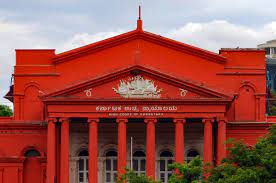The Aryavarth Express
Aryavarth (Bengaluru): In a resounding verdict, the Karnataka High Court has delivered a stinging rebuke to the Hubli Electricity Supply Company Limited (HESCOM), a state-owned corporation, for its egregious violations of employee rights and natural justice principles. The court’s judgment serves as a potent reminder of the constitutional obligation to treat employees with fairness and due process, even in cases involving alleged misconduct.
The case revolved around a retired employee, the petitioner, who found himself embroiled in a protracted legal battle spanning over a decade, fighting for the release of his rightful pension and terminal benefits. Despite attaining superannuation on May 31, 2013, the petitioner’s retirement dues remained withheld by HESCOM, ostensibly due to a series of recovery orders imposed against him throughout his service and post-retirement.
The saga commenced in 2005-2007 when the petitioner, then employed as a Section Officer at Hidkal, was accused of failing to return 69 failed transformers to the stores, allegedly causing a loss of Rs. 20,03,952 to the company. Without conducting any inquiry or adhering to due process, HESCOM unilaterally initiated a recovery of Rs. 5,000 from the petitioner’s salary in 2008, setting in motion a cascade of egregious violations of procedural safeguards.
In a shocking turn of events, the corporation issued a charge memo against the petitioner in 2011, invoking Rule 12 of the Karnataka Electricity Board Employees’ Regulations, 1987, pertaining to the imposition of minor penalties. This culminated in the imposition of a penalty in 2012, recovering the same amount that had already been deducted from the petitioner’s salary three years prior and reducing his pay scale to the lowest rung of the Junior Engineer cadre.
The petitioner’s ordeal did not end there. Upon retirement, his pension was withheld, and the corporation continued to initiate recoveries from year to year, based on purported investigations, discreet inquiries, and the findings of a Special Committee appointed to probe the shortage of transformers. Notably, the petitioner was never privy to these proceedings, nor was he afforded an opportunity to present his case or challenge the alleged findings against him.
In a scathing indictment of HESCOM’s actions, the High Court observed that the corporation had treated the petitioner as a “chattel,” imposing penalty after penalty without adhering to the basic tenets of due process and natural justice. The court took particular exception to the fact that no inquiry worth the name had ever been conducted against the petitioner, in blatant violation of the regulations governing disciplinary proceedings.
Invoking the landmark judgment of the Supreme Court in Manoj Kumar vs. Union of India and Others, the High Court emphasized the dual responsibilities of constitutional courts: not only to control the exercise of power and set aside arbitrary actions but also to address the injurious consequences arising from such actions through reasonable measures of restitution.
In a scathing rebuke, the court observed, “What shocks the conscience of the Court is that the Company has behaved as if it is the personal fiefdom of the officers manning the office. They appear to have blissfully forgotten that there are Rules and Regulations to be followed before imposing any penalty.”
Recognizing the petitioner’s case as “sui generis” – a rare instance of egregious arbitrary action by an employer against an employee – the court deemed it appropriate to award restitution for the illegal acts of the corporation. Upholding the principles enshrined in the Constitution of India, the court held that the petitioner was entitled to the fullest extent of legal remedies, not merely the quashing of the arbitrary orders.
In a sweeping directive, the High Court quashed all recovery orders against the petitioner, including the order dated July 29, 2021, passed by the Superintending Engineer (Ele.), HESCOM, and the order dated October 16, 2017, passed by the Chief Engineer (Ele.), HESCOM. Furthermore, the court issued a mandamus compelling HESCOM to settle and pay the petitioner’s pension and all terminal benefits, along with interest at the rate of 6% per annum from the date of superannuation until the date of payment.
Underscoring the gravity of the matter, the court imposed a cost of Rs. 1 lakh on the corporation, payable to the petitioner within four weeks. Failure to comply with the order within the stipulated timeframe would result in the petitioner being entitled to an enhanced interest rate of 12% per annum from the date of superannuation until the date of payment.
The judgment stands as a resounding affirmation of the principles enshrined in the Constitution, upholding the rights of employees against arbitrary action by employers, even in cases of alleged misconduct. It serves as a potent reminder that due process and natural justice are not mere formalities but essential safeguards that must be rigorously upheld, lest the rule of law be eroded.
